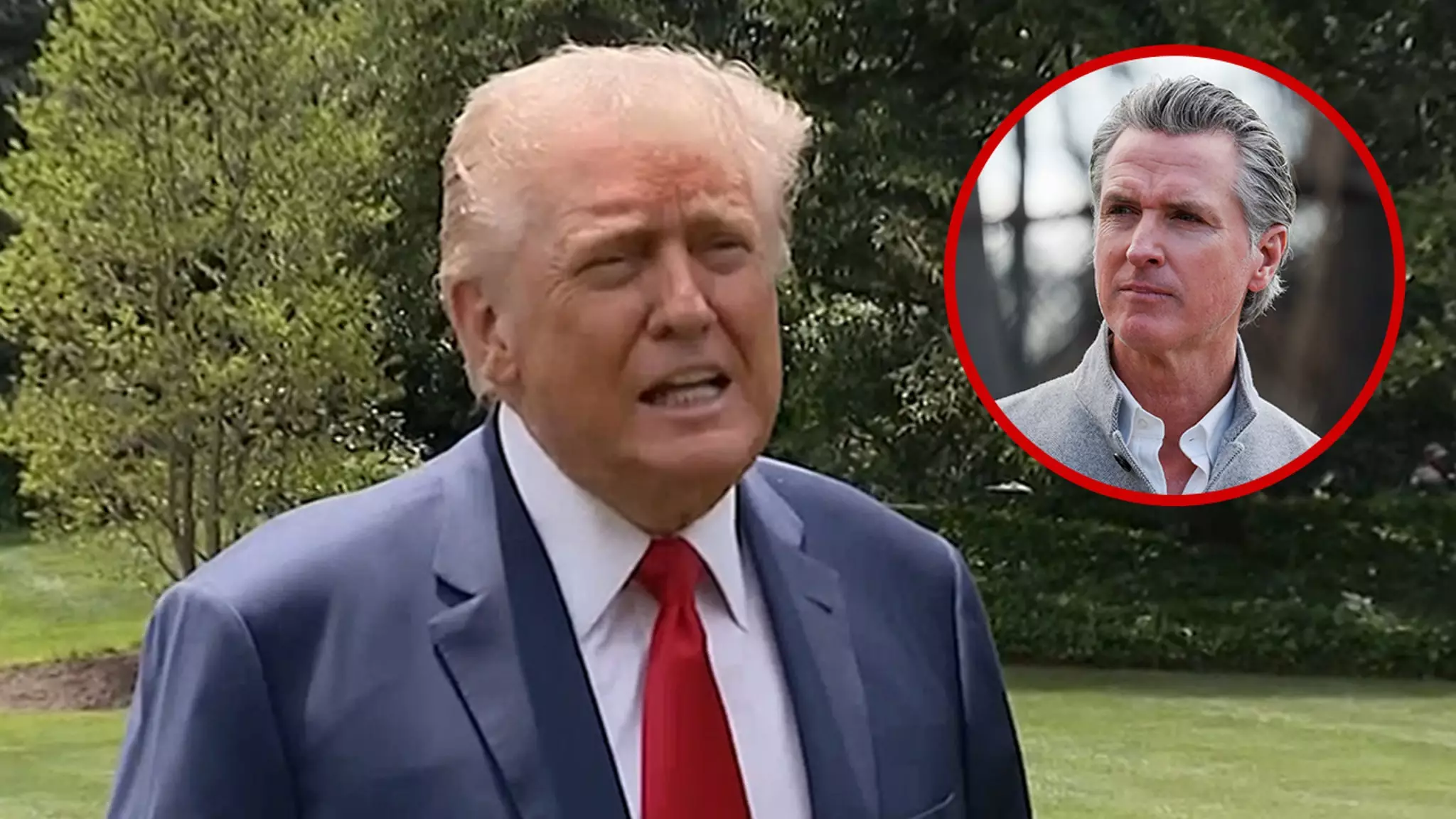The recent clash between President Trump and California officials exemplifies the grave polarization surrounding immigration policy in the United States. With Trump’s declaration that he would support the arrest of California Governor Gavin Newsom for obstructing federal immigration enforcement, the conflict has reached an alarming level. This confrontation highlights not just a dispute between local and federal jurisdictions, but also the broader social unrest as a reaction against the harsh realities of immigration tactics deployed by ICE.
Trump’s Border Czar, Tom Homan, didn’t merely issue a veiled threat; he articulated a hardline stance that positions state officials as potential felons for their decisions to limit cooperation with federal immigration operations. Such statements invigorate the narrative that bypassing federal directives can result in severe consequences, amplifying a ‘law and order’ rhetoric that has become central to Trump’s political identity. The singular focus on penalizing local leaders raises significant questions about the balance of power between federal and state governments and the role that individuals play in advocating for humane treatment of vulnerable communities.
Backlash and Resistance
Governor Newsom’s fervent response is emblematic of the pushback against what many view as overreach by the federal government. His accusations of Homan’s tough-guy posturing illustrate a growing sentiment among state leaders who feel cornered by the Trump administration’s aggressive immigration policies. By labeling Homan’s threats as “foolish,” Newsom reframes the conversation from one of compliance to one of defiance—a challenge to federal authority in the face of rising civil unrest spurred by the brutality of immigration raids.
As protests erupted in Los Angeles in response to ICE arrests, they not only shed light on the humanitarian crises at play, but also set the stage for a battleground where ideologies clash. Protesters, many of whom see government’s immigration raids as a violation of human rights, represent a populace increasingly willing to confront systemic injustices. Trump’s comments that blame ‘professional agitators’ for the unrest further polarize an already fragmented society and demonize those passionately advocating for change.
The Broader Implications of Division
The escalation in California not only highlights a contentious moment in immigration policy but raises crucial discussions about institutional trust and the meaning of community policing. When leaders resort to threats and insults rather than diplomacy, it erodes public confidence in institutions meant to safeguard civil liberties. The tug-of-war over immigration reflects a society deeply divided on the path forward, with neither side willing to concede ground.
As these clashes continue, one must question whether this trajectory will lead to greater unity in advocacy for comprehensive immigration reform or further entrench division among Americans. With President Trump openly endorsing the possibility of jail time for elected officials merely for their stances on immigration, the very fabric of democratic discourse is at stake. The real risk lies in mundane acts of governance being politicized into a spectacle of retribution, creating a chilling atmosphere where constructive dialogue becomes increasingly unattainable.
This growing climate of antagonism not only impacts California but reverberates across the nation, highlighting the need for a comprehensive, compassionate conversation around immigration, one that can pave the way towards understanding and cooperation, rather than fear and division.

